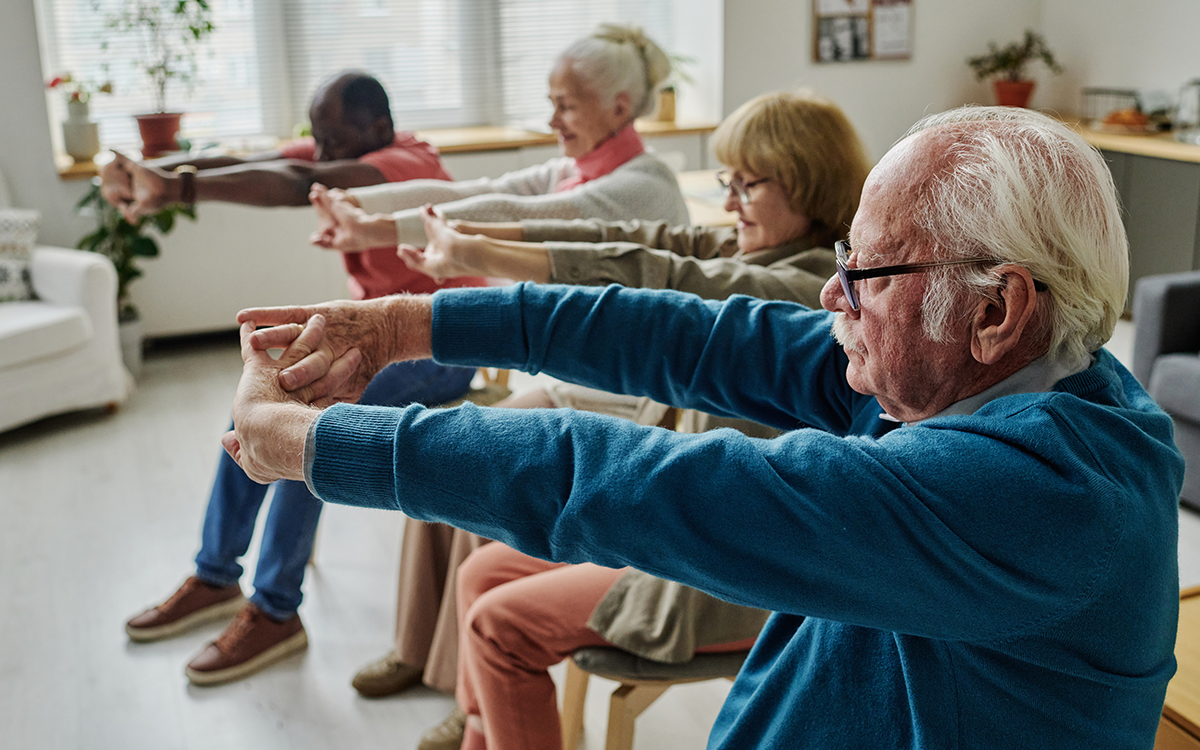Being thankful, or rather, adopting ‘an attitude of gratitude’ is essential to living healthfully. Because feeling gratitude and appreciating the positive or simply accepting the lesson in the moment—especially during challenging times—can reinvigorate us, help put us on the path to healing, and give hope. It’s a coping mechanism that goes beyond a bandaid solution to being a daily practice with real results for a happier, healthier life.
Now, doesn’t that sound like a wonderful way to enter the retirement phase?
Why Gratitude Matters in the Retirement Years
Gratitude is more than a fleeting feeling. It is a tender lens through which life comes into sharper and kinder focus. And in times of transition, like stepping into retirement, this lens can actually change…everything.
It re-energizes the spirit, guiding us to dwell not on what has been left behind but on the treasures still within reach. It helps us move forward with renewed strength. It cradles us through hardship, transforming obstacles into quiet steppingstones, each one carrying us toward resilience.
And perhaps most beautifully, gratitude nurtures hope, the kind of hope that brightens both grand adventures and the quiet rituals of each day.
The Positive Effects of Thankfulness on Mind and Body
Science gently affirms what our hearts have long whispered. Being grateful is healthy for us. Gratitude calms the mind, reduces tension, and relieves stress by moving our focus from what we don’t have to what we do have.
Being thankful frequently makes us want to take better care of ourselves. It lets us pick habits and behaviours that keep us going. It strengthens our immune system because happiness and tranquilly flow through our cells. It also helps us sleep better since a calm heart slips more lightly into the night.
Gratitude is not just a notion or a transient mood; it is a whole-body regeneration, a continual, calm harmony between the mind and spirit.
5 Joyful Ways to Make Retirement a Time of Gratitude
It doesn’t happen immediately that retirement becomes a journey full of thanks. It’s about doing things consistently and with thought until they become second nature. Here are five easy, heartwarming things you can do to help:
1. Journal Your Gratitude Daily
Journaling every day is a cathartic way to express your feelings and gain perspective on them. Through writing, you begin to see an angle you might otherwise not have and transform your takeaways into those of thankfulness for what happened, positively or negatively, for how it serves you moving forward.
Think of journaling as a conversation with your heart. Each evening, take a few minutes to jot down what made you smile, what challenged you (and what you learned from it), or even the small, seemingly ordinary moments, a good cup of tea, a warm hug, a bird singing outside your window
Pro tip: Don’t overcomplicate it. A simple list of three things you’re grateful for each day can transform your outlook in just weeks.
2. Practice Mindful Meditation With Your Senses
Meditation that incorporates the five senses is an excellent way to ground you in the here and now to appreciate what’s around you, rather than dwell in the past or constantly worry about the future.
Meditation can be beautifully simple. It can be just a five-minute pause to awaken the senses. Look around and notice what brings you comfort, listen for the sounds that soothe, feel the textures that ground you, breathe in the scents that lift your spirit, and savour the tastes that remind you to be thankful.
In these small moments, the world gently gathers you back into the present.
3. Nurture Relationships—They’re Life’s Sweetest Treasure
Journeys are always better when shared!
Nurturing your friendships and family connections can help you to appreciate your shared history and current passions. What better way to spend retirement than doing what you love, with those you love? Even just a quick end-of-day text to say “thanks for being in my life” or sharing some other moment you’re grateful for will end the day on a high note.
4. Volunteer and Share Your Gifts With Others
Retirement is a golden opportunity to give back.
While you’re sharing, consider making a difference in the lives of those you don’t know through the power of volunteering! A great way to share what shaped you and what you’re thankful for with others who could use a positive influence. It could be tutoring, cooking for a community group, mentoring young professionals, or simply lending a listening ear at a local center, your gratitude can ripple outward in ways you might never fully see. The beauty is, those ripples flow back to you, too.
5. Keep Your Body Moving With Thankfulness
A healthy body, mind, and soul are the most important things to be thankful for. Read our 15 ways to stay active in order to contribute to your overall well-being as part of your thankfulness journey, because the more a body is in motion, the longer it’ll be energized to stay in motion!
How to Make Gratitude a Daily Habit
Gratitude works best when it becomes a habit, just like brushing your teeth or having your morning coffee. Here are some easy ways to make being thankful a habit:
Start with a little: One thought of thanks every morning before you get out of bed.
Use visual reminders: Write “thank you” on a sticky note and put it on your mirror.
Make up rituals: At supper with family or friends, tell them one item you’re glad for.
Think over your day before you go to bed: End your day with thanks to help you sleep better.
Gratitude becomes a normal part of life over time, not just something you do once in a while.
The Beauty of Choosing Gratitude
Here’s the truth: some days, gratitude feels easy. Other days, it feels like a stretch. But gratitude is a choice, one that gets easier with practice.
When you begin to focus on what you do have instead of what you don’t, life softens around the edges. Moments of joy expand. Challenges shrink to size. And retirement transforms into not just a season of rest, but a season of renewal.
Living Thankfully, Living Fully
Remember, gratitude is a choice!
Some days it can feel a little harder than others to be thankful. But once you begin, the effects begin to take root, and being thankful for what you do have, rather than focusing on what you don’t, becomes second nature.
So, write in a journal. Think. Get in touch. Give your time. Get your body moving. Be happy about the little things. When the days seem heavy, remember that just saying thank you can let in light, hope, and happiness.
Because every stage of life is a gift.
And what about retirement?
Now is the best time to open it with thanks.
For more practical tips on mindful aging, scroll purposefully through our Inspiring Stories blog.




